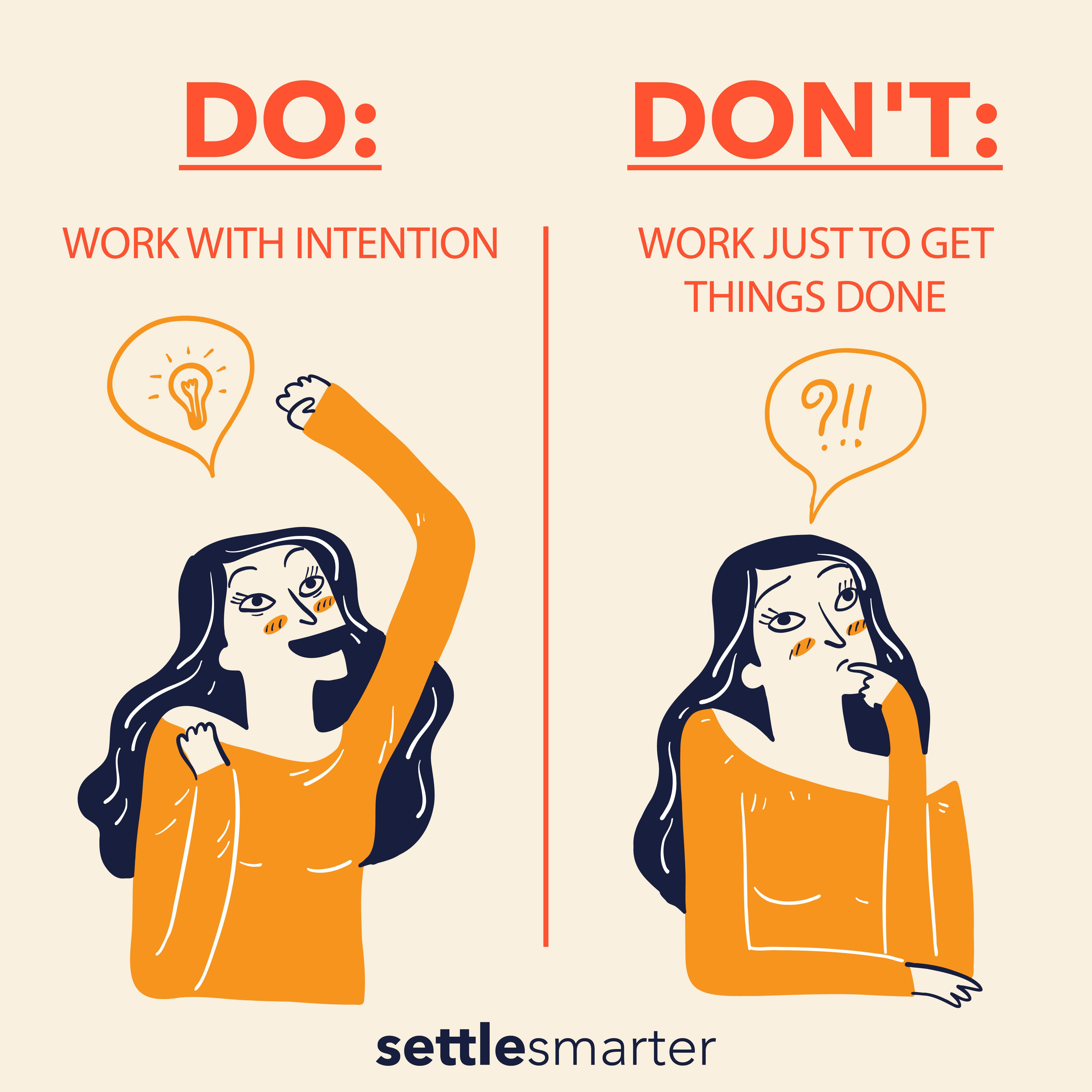One of the things I love about my job as an executive and leadership coach, is that even as I am helping my clients achieve their goals, I learn so much from them.
Since most of my clients are executive level, delegation is a topic that comes up a lot. When do I delegate? How do I identify who to delegate to? When do I check-in and hold people accountable without micromanaging?
I work with my clients on these issues, but, when it comes to delegation, I am not perfect. So, I pick up great tools and tricks from my clients on how I can improve when and how I delegate.
Recently, during an executive coaching session with a client who is a CFO, he introduced me to a new acronym: DWR. Delegate Without Remorse.
The more he explained, the more impressed I was with this method of delegation.
Here is what we all need to learn and practice as leaders at work and in life:

- Always Delegate Where Your Core Talent Is Not In-Play
We all have strengths and weaknesses. I am a big proponent of focusing on what we are good at instead of always trying to better our weak points. So, whenever you are faced with a problem or task that is not your strong suit, you delegate. For example, if you’re not a detail-oriented person but you are strategic, partner up with someone who is good at seeing the trees while you focus on the forest. This person can be on par with you or reporting to you. It doesn’t matter. Take the task on together and divide up the parts based on each of your strengths. This way, you will both work on things that fulfill you and produce a better end product.
And if you are looking to hire new talent, hiring “better” than yourself is important. Hire your weaknesses into the organization so that you can better complement yourself. This will help you delegate effectively.

- Be Bold When You Delegate
To delegate well, we need to be strong and secure in what we are good at and how we want to spend our time. For example, in a marriage, it’s not enough to equally divide up the work. It’s never going to be completely equal. It’s unfortunate but that’s the reality. Instead, you want to communicate with your partner what they are great at, how they would ideally like to spend their time, and what tasks and responsibilities they are willing to accept.
I’ll give you an example from my life.
I hate taking out the trash and doing the laundry but my hubby doesn’t mind at all. I am great at folding and putting away the clothes, however! - Cut Out the Guilt
Alright, we all know how I feel about guilt. And if you don’t, it’s quite simple. Guilt serves no one. Stop it.
This, unsurprisingly, applies to delegation. Delegating is admitting you aren’t perfect and you need some help. And that’s totally fine! We all have weaknesses but asking for help is NEVER one of them.
And if you are worried about putting extra work on people, look at things logically. Take the emotion out of it. Ask whomever it is you would like help from what they have on their plate and if they have the capacity to help you out.

What if you are in a leadership position and are worried that people may not want to say no to you? First, create an atmosphere around you where people can be comfortable expressing themselves honestly (I have a blog to help you get started. You can read it here). Then, ensure that they have a solid foundation for prioritizing. If they don’t, work with them to sort through everything on their plate and help them come up with a plan on how and when to tackle their tasks. If they run into obstacles, help clear them out of the way so that they have more room for their best work to show up. This may mean that your project is not the highest priority and you may need to wait until the person can help you. Remember, that you delegated to this person because they and their strengths are valuable to whatever it is you are trying to achieve. Work together with that in mind. Everyone wins.
Good Delegation is the Sign of Great Leader – In and Out of Work
Delegating, at its core, is about understanding yourself and those around you. By knowing where your interests lie focusing on your strengths and leveraging the interests and strengths of those around you, you will achieve more with less stress and burn-out.
When you delegate right, you relieve the pressure off of yourself but you also aren’t burdening another. It needs to be mutually beneficial.
So, no more guilt. Start Delegating without Remorse!


